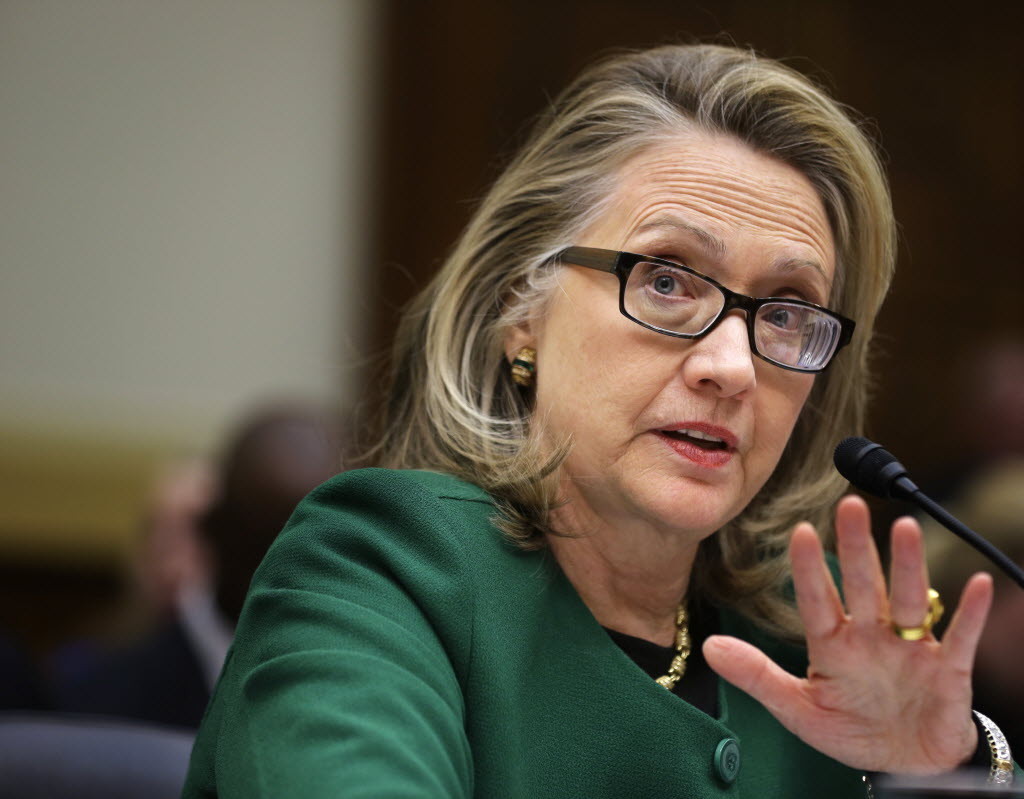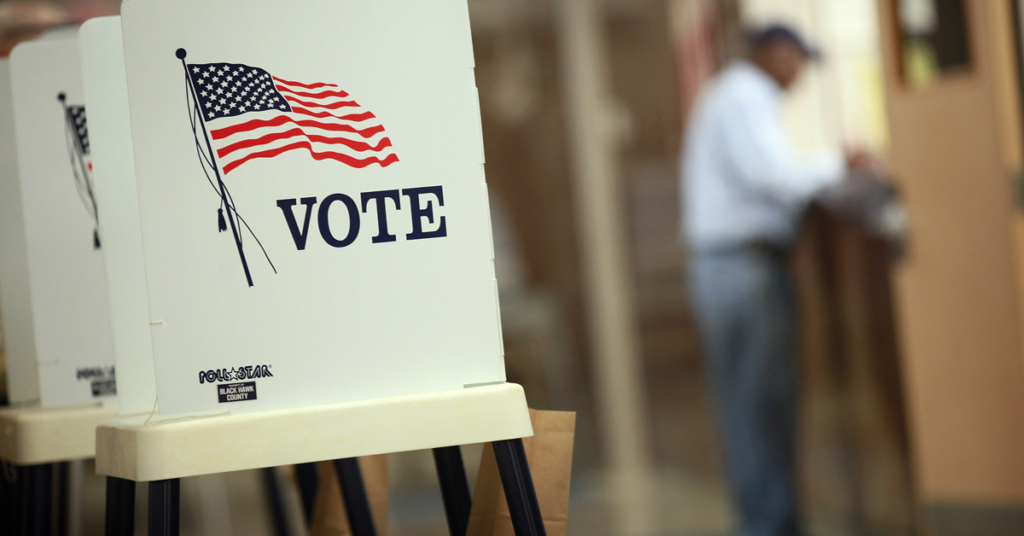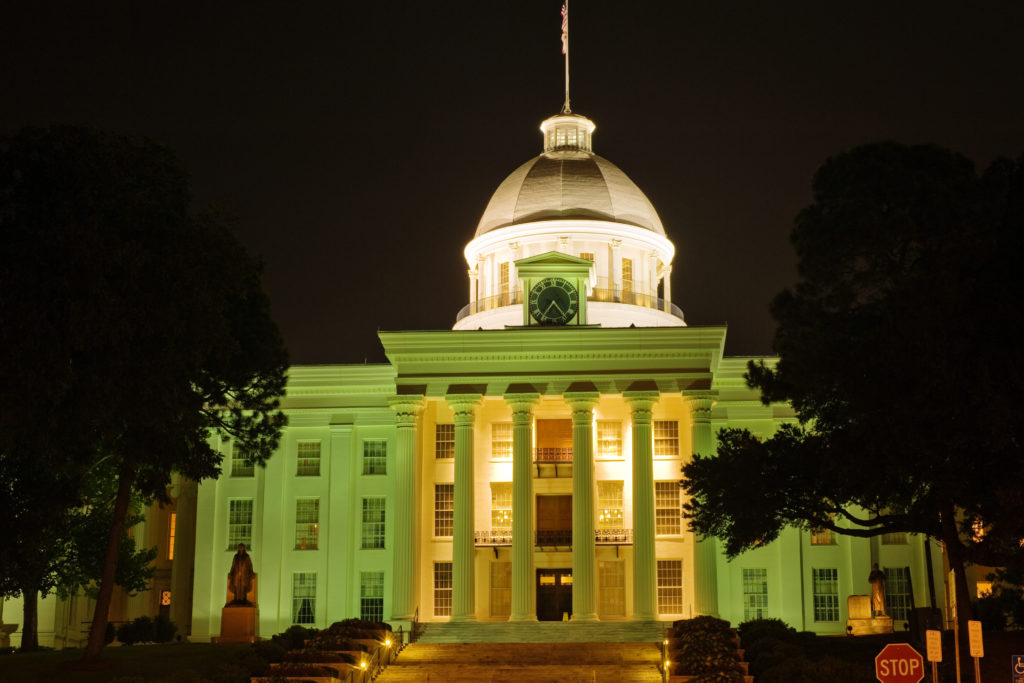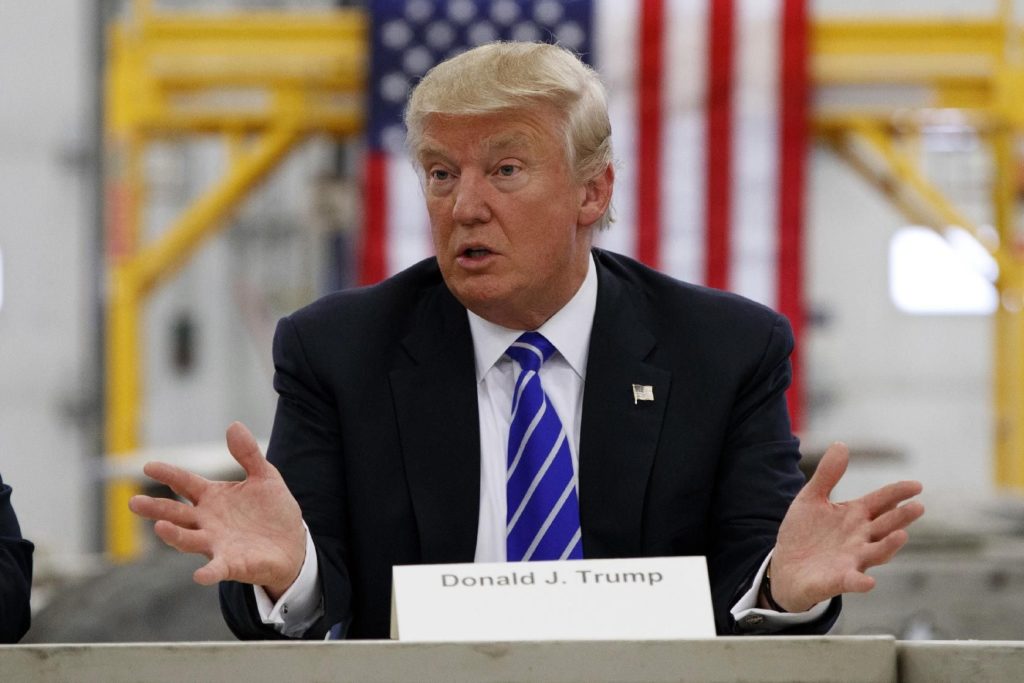Ethics commission to weigh if PSC member can lease to solar company

A state ethics panel will reconsider whether a member of the Public Service Commission can lease land to a solar energy company that in turn would sell electricity back to a power company regulated by the PSC. Public Service Commissioner Chip Beeker asked for the opinion regarding the potential lease on his pasture land for the solar generation facility. The Alabama Ethics Commission deadlocked on the matter this month. The ethics panel listed the opinion on its Thursday agenda. However, a lawyer representing Beeker said he was surprised the request was being reconsidered this week. Attorney James Anderson says he will ask the commission to wait until its regularly scheduled October meeting. The PSC does not regulate the solar company. But it regulates Alabama Power, which might buy the electricity. Republished with permission of The Associated Press.
Alabama officials testing 540 Hyundai workers for TB

An Alabama public health official says 540 workers are being tested for possible tuberculosis infection at the Hyundai automobile plant outside Montgomery. The tests and evaluations Tuesday came after an employee at the plant was confirmed to have pulmonary tuberculosis. Pam Barrett of the Alabama Department of Public Health says only co-workers who were in close contact to the infected employee were being tested. Pulmonary tuberculosis is an airborne disease that can be spread when someone coughs or even speaks. Symptoms include a bad cough and chest pains. Tuberculosis is treatable, but in rare cases it can be deadly. Hyundai Motor Manufacturing Alabama spokesman Robert Burns told the Montgomery Advertiser that workers were told about the tests Monday and the plant was cooperating with health officials. Republished with permission of The Associated Press.
Federal lawsuit challenges Alabama requirement for ethics training before lobbying public officials

Can the state of Alabama require an ethics law class before exercising First Amendment rights? According to the Alabama Ethics Commission, it can and does. Virginia-based public interest law firm Institute for Justice filed a new federal lawsuit on behalf of Maggie Ellinger-Locke and the Marijuana Policy Project (MPP). At issue is an Alabama law requiring all registered lobbyists to attend an ethics class offered only four times a year and in only one place – Montgomery. Founded in 1995, MPP is the largest organization in the U.S. focused on ending the prohibition on marijuana. According to the group’s website: “MPP’s mission is to change federal law to allow states to determine their own marijuana policies without federal interference, as well as to regulate marijuana like alcohol in all 50 states, D.C., and the five territories.” Part of Ellinger-Locke’s job, says IJ Senior Attorney Paul Sherman in a recent op-ed, is to talk with legislators and government officials in nearly a dozen states on ways to make marijuana policy “more just, sensible and humane.” “Unfortunately for her,” Sherman writes, “all lobbyists in Alabama are required to take an in-person ethics class.” The problem is, Ellinger-Locke lives in Arlington, Virginia and works at the MPP headquarters in Washington DC. Sherman also points out that mayors, city and county council members, as well as members of local boards of education, are each required to take similar training – a program that could easily be offered online. Nevertheless, Sherman adds that such a requirement is not only bad public policy but also unconstitutional. That is why IJ filed a First Amendment challenge in federal court. “If a person wants to talk to an elected official about a matter of public policy,” Sherman concludes, “they shouldn’t have to take a government-mandated class. Instead, the only thing they should need is an opinion.” Sherman and MPP Director of State Policies Karen O’Keefe will be available to discuss the case and answer questions on the case through IJ’s conference line – 800-326-6981 (Password: 415681) – beginning 9:30 a.m. CST (10:30 EST) Wednesday.
Robert Bentley appeals refugee lawsuit dismissal

Gov. Robert Bentley announced Tuesday the state will appeal a federal court’s dismissal of the governor’s lawsuit against the federal government over refugee placement. The governor’s office said the appeal was filed Tuesday with the 11th U.S. Circuit Court of Appeals in Atlanta in the wake of his suit’s dismissal on July 29. “The District Court based its dismissal on a technicality, a finding that Alabama may not sue to enforce the Refugee Act,” Bentley said. “The District Court did not find that the federal government was fulfilling its obligations under the act.” Bentley he said he wants a court order to require the government to comply with its statutory obligations to consult with the state before placing refugees within its borders. “My problem is not with individual refugees, rather my issue is with the federal government and the unwillingness to enforce their own laws and follow their own procedures,” Bentley continued. “I will continue to fight this issue until the federal government is held accountable for its noncompliance and is properly including the states in this important decision-making as required by law.” In January, Bentley filed a lawsuit on behalf of the state of Alabama, stating federal officials are in violation of the Refugee Act of 1980, which he contends requires a consultation with states regarding the placement of refugees before those refugees are placed within its borders. This, despite the fact that U.S. Supreme Court precedent has held repeatedly that matters of immigration and asylum are the responsibility of the federal government. A judge had previously dismissed a similar lawsuit in Texas, ruling resettlements are federal decisions, and that the state isn’t entitled to pick and choose which refugees locate where.
Benghazi emails involving Hillary Clinton recovered by FBI, State Department says

The State Department says about 30 emails involving the 2012 attack on U.S. compounds in Benghazi, Libya, are among the thousands of Hillary Clinton emails recovered during the FBI’s recently closed investigation into her use of a private server. Government lawyers told U.S. District Court Judge Amit P. Mehta Tuesday that an undetermined number of the emails among the 30 were not included in the 55,000 pages previously provided by Clinton to the State Department. The agency said it would need until the end of September to review the emails and redact potentially classified information before they are released. The hearing was held in one of several lawsuits filed by the conservative legal group Judicial Watch, which has sued over access to government records involving the Democratic presidential nominee. The State Department has said the FBI provided it with about 14,900 emails purported not to have been among those previously released. Clinton previously had said she withheld and deleted only personal emails not related to her duties as secretary of state. In a separate development Tuesday, a law enforcement official told The Associated Press that the FBI is expected to release documents soon related to its investigation, which focused on whether Clinton and her aides mishandled government secrets. The official, who was not authorized to discuss the matter by name and spoke on condition of anonymity, said documents in the case would be made public as the FBI responds to Freedom of Information Act requests. It wasn’t immediately clear when the documents would be released or exactly what they would include. Though he described Clinton’s actions as “extremely careless,” FBI Director James Comey said his agents found no evidence that anyone intended to break the law and said “no reasonable prosecutor” would have brought a criminal case. The FBI this month provided Congress portions of its file from the agency’s yearlong investigation. The FBI interviewed Clinton for several hours at FBI headquarters in Washington just days before announcing its decision to close the investigation. The Justice Department accepted the FBI’s recommendation. CNN reported that the records could be made public as early as Wednesday. Republished with permission of The Associated Press.
20 Democratic senators blast steep price hike for EpiPens

Twenty Democratic senators are demanding answers about steep price hikes for the life-saving EpiPen injector device. The senators said in a letter to the CEO of pharmaceutical company that makes the devices, Mylan N.V., that price hikes of more than 500 percent have jeopardized access to emergency allergy shots for many Americans. The letter was addressed to Heather Bresch, daughter of Democratic Sen. Joe Manchin of West Virginia. Manchin did not sign the letter. Mylan has responded to the public outcry by expanding programs to make EpiPens more affordable and promising a cheaper, generic version. But the senators who signed the letter say the generic device still costs three times more than the branded EpiPen did in 2007. They are asking Mylan to answer detailed questions by Sept. 12. Republished with permission of The Associated Press.
FBI warns of possible state election-system hacks

The FBI is warning state officials to boost their election security in light of evidence that hackers targeted related data systems in two states. In a confidential “flash” alert from its cyber division, first reported by Yahoo News and posted online by others, the FBI said it’s investigating the pair of incidents and advised states to scan their systems for specific signs of hacking. The FBI said Monday that it doesn’t comment on specific alerts, but added that it routinely sends out advisories to private industry about signs of cyber threats that it comes across in its investigations. The FBI didn’t name the states that were targeted, but it described a “compromise” of one elections board website and “attempted intrusion activities” in another state’s system. State election websites in Illinois and Arizona experienced hack-related shutdowns earlier this summer. In both cases, the parts of the websites affected involved online voter registration. The FBI’s Aug. 18 warning also came just days after Homeland Security Secretary Jeh Johnson hosted a call with secretaries of state and other state election officials to talk about cybersecurity and election infrastructure. In that call, Johnson said that while DHS isn’t aware of any particular cyber threat against election-related computers, it’s “critically important” to make sure that election systems are secure amid a rapidly changing threat landscape, according to a DHS summary of the call. In the Arizona case, the FBI notified state officials in June about what the agency called a “critical threat” to the state’s voter registration system, which shut down on June 28, according to Matt Roberts, a spokesman for the secretary of state’s office. A county worker had downloaded a piece of malware that exposed their access credential and password, which then wound up online, Roberts said. A forensic examination of the state database found no evidence of unauthorized access. Roberts said he’s not positive the new FBI’s “flash alert” refers to Arizona, but said it appears likely. The system came back online on July 7 with new security features. Federal officials are becoming increasingly concerned about the possibility that hackers, particularly those working for Russia or another country, could breach U.S. elections systems and wreak havoc on the November presidential election. Some experts, along with Democrat Hillary Clinton‘s campaign, believe that Russia was behind the embarrassing email hack of the Democratic National Committee right before its national convention last month. The hacked emails showed an apparent lack of neutrality in the primary race between Clinton and Bernie Sanders, with some party officials disparaging Sanders. Republished with permission of The Associated Press.
What will the Alabama Legislature tackle in the final three days of special session?

After an 11th-hour Hail Mary attempt to save it, Gov. Robert Bentley‘s proposed state lottery failed in the Alabama Senate Friday night. Bentley called the special session in July and tasked lawmakers solely with considering a state lottery. After a week of back-and-forth on various bills, Senators voted 23-7 to reject changes the Alabama House of Representatives made to the bill. The bill’s sponsor, Sen. Jim McClendon, on Friday proclaimed the legislation is “dead” for the special session. “It’s over,” he said. In the wake of the lottery bill’s failure, both chambers adjourned until Sept. 6. Meanwhile, Alabama Medicaid continues to face an $85 million shortfall in funding — an issue expected to be fixed with the BP settlement bill. In the first week of special session, the House of Representatives cleared a major hurdle in approving a bill to use the state’s settlement funds from the 2010 Deepwater Horizon BP oil spill in the Gulf of Mexico to pay debts and build roads in south Alabama. Lawmakers approved the bill 88-10. Whether or not that bill will clear the Senate remains to be seen. When the special session resumes after Labor Day, lawmakers will only have three days to land on a solution to a lottery and the issue of what to do with BP settlement funds. Bentley has not ruled out the possibility of another special session to bring the lottery back up as a permanent fix.
Donald Trump’s deportation waffle highlights campaign weaknesses

Donald Trump and his aides used to say that voters didn’t care about the nitty-gritty of policy details. But now those details are tripping up his campaign. For more than a week now, as he’s tried to shine the spotlight on his rival, Trump has appeared to wrestle with one of his signature proposals: A pledge to expel everyone living in the U.S. illegally with the help of a “deportation force.” At a Fox News town hall taping last week, in the face of pressing questions, the GOP nominee proceeded to poll the audience at length on the fate of an estimated 11 million people. It was a stunning display of indecision from a candidate who has asked voters to put enormous faith in his gut instincts. Trump is now planning a major speech Wednesday, during which he’s expected to finally clarify his stance. Supporters are hoping for a strong, decisive showing. But the episode underscores how little time his campaign has invested in outlining how he would accomplish his goals as president, especially when compared with the detailed plans of his Democratic rival, Hillary Clinton. And for critics, many already disposed to vote against him, his wavering on what has been his signature issue seems like a warning that he’s unable to handle a central element of any president’s job – making decisions. “It’s just puzzling,” said Lanhee Chen, who has served as a policy adviser to several Republican presidential candidates. “This is the issue on which he rose to prominence in the primary and the issue on which he continues to stake much of his campaign.” From the start, Trump has never been the kind of candidate to pore over thick policy books. Indeed, he has mocked Clinton on the subject. “She’s got people that sit in cubicles writing policy all day. Nothing’s ever going to happen. It’s just a waste of paper,” he told Time Magazine in June. “My voters don’t care and the public doesn’t care. They know you’re going to do a good job once you’re there.” To date, Trump’s campaign has posted just seven policy proposals on his website, totaling just over 9,000 words. There are 38 on Clinton’s “issues” page, ranging from efforts to cure Alzheimer’s disease to Wall Street and criminal justice reform, and her campaign boasts that it has now released 65 policy fact sheets, totaling 112,735 words. “I’ve laid out the best I could, the specific plans and ideas that I want to pursue as your president because I have this old-fashioned idea,” Clinton said during a recent speech in Colorado. “When you run for president, you ought to tell people what you want to do as their president.” Trump’s new campaign manager, Kellyanne Conway, has said she’s pushing her boss to get more specific. Yet his positions on a host of issues remain vague at best. For example, while Trump has slammed the Common Core education standards and touts the benefits of local control of education, he has no formal, detailed plans for improving public schools. He talks about student loan debt and the increasing costs of higher education, but has yet to propose solutions. He has teased plans to make childcare more affordable, but has missed his own deadline for unveiling them. Trump’s supporters say questions about his recent waffling on the deportation question are overblown. His running mate, Mike Pence, describes him as “a CEO at work” as he consults with various stakeholders. “You see someone who is engaging the American people, listening to the American people,” Pence told CNN on Sunday. “He is hearing from all sides.” But Chen, the Republican policy adviser, said a President Trump arriving at the White House without detailed plans could be limited in how much he might achieve, since a new president’s power is at its apex early on. “If you’re not able to hit the ground running, chances are you’re going to run into serious resistance if you sit there studying something for the first 100 days,” he said. Republished with permission of The Associated Press.


